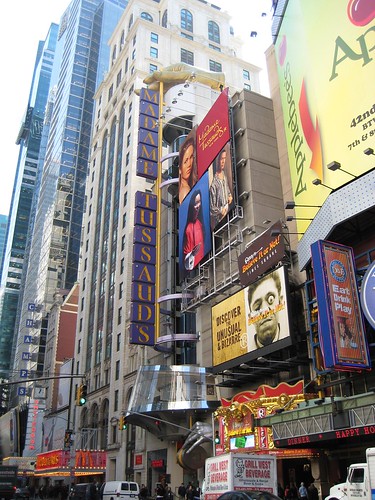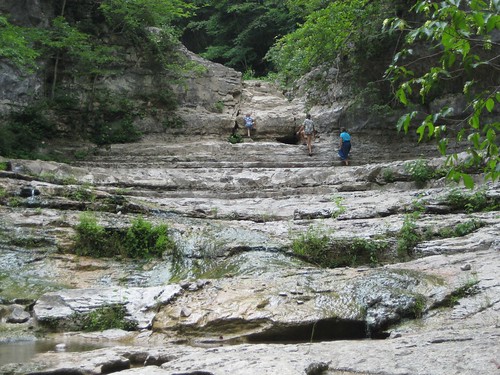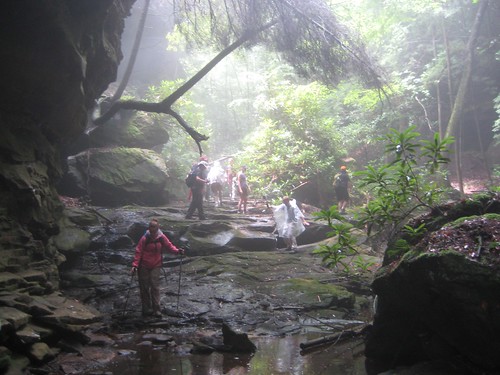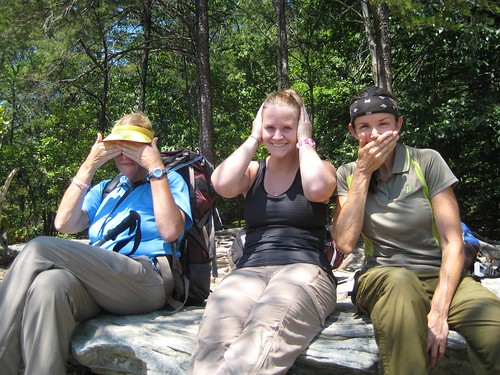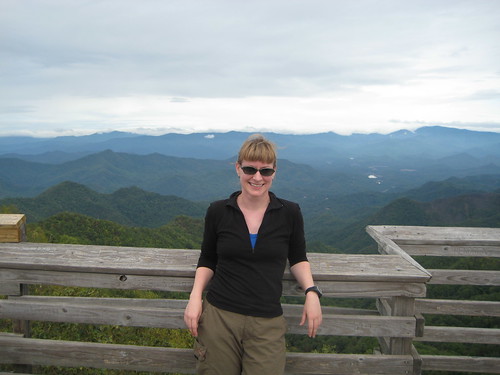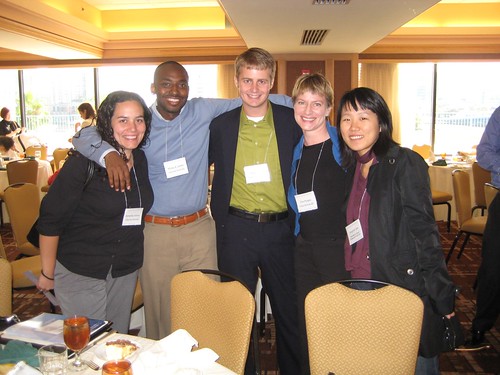I read Neal Stephenson's new book,
Anathem, this weekend. I used to be a really big fan, although his trilogy bored me senseless. (Even being the completeness freak that I am, I haven't yet managed to muster up any enthusiasm for starting the third installment.) Over his career his books have become increasingly didactic: at times, reading him is like reading Ayn Rand or Upton Sinclair. Of course, instead of being clobbered over the head about social systems, the reader is clobbered over the head with the intersection of philosophy and science. This tendency was evident as far back as
Snow Crash, but it has grown. Most of the difference in weight between
Zodiac and
Anathem is in pages of technical explanations, not rising and falling action. I chose
Zodiac deliberately, because both books feature a first-person narrator; other books are long in part due to following around a phalanx of characters.
I suppose that Stephenson has two hopes for readers (assuming I have a theory of mind for the author that is remotely accurate) - that after finishing his book they have a) enjoyed it and b) continue to ponder the arguments about space, time, math, etc. he uses. Being the perverse sort of reader that I am, I don't have much interest in (b). I am much more interested in the monastic communities that are central to the book, and in particular, in their long existence.
I do mean long - several thousand years. Over the time, they have changed significantly without losing their central purpose: the preservation and creation of knowledge. Civilizations have risen and fallen; population centers have moved with climate change.
Compare that with what we have in our presumably non-fictional world. Universities are some of the oldest institutions extant today; Bologna is coming up on its first millennium. A few madrasahs are older than that. The Catholic Church is even older at nearly two millennia. The Catholic Church is an interesting case. It wasn't founded with the explicit mandate to last 2000 years but simply survived. Contrast this with the government's attempt to keep radioactive waste buried for at least 10,000 years at at Yucca Mountain. Stephenson touches on the issue of storing radioactive material in
Anathem, by the way, and I can't help but think that his solution - which involves people actually having the care of it - is a better on than burying it really deep, slapping some "stay away" signs on the site, and hoping geology and climate change don't destabilize it.
But how would you go about deliberately building an institution that could last for perpetuity - let's say as long as the planet lasts, or for as long as humanity lives on it? In modern America the first instinct would be no doubt to start amassing an endowment. But no monetary investment is going to be stable over these time periods. Precious metals and that sort of thing might be safer. Those are prone to pillaging, however. Another alternative would be to run as self-sufficiently as possible so as not to depend on any one economy.
One would want multiple sites, not only in case the local community brings out the pitchforks, but because of climate change, plate tectonics, what have you. Presumably individual branches would perish but the larger enterprise would roll on. That, however, brings up the difficulty of keeping sites in some sort of contact. It would naturally grow sporadic in dangerous or primitive times.
The institution would need to be able to cope with times of high and low technology. It might need to be irreligious to avoid holy wars, not to mention the waning of any particular faith. It would need to survive periodic co-option by governments. It would need to survive scenarios that the wildest sci-fi writers can dream up - massive overpopulation, near extinction, the singularity, nuclear war, alien invasion, etc. They need to survive the extinction of the culture they were founded in.
This last point strikes me as the most difficult. Most organizations on our planet haven't lasted because they were built to serve a particular civilization. That is true of today's organizations as well (the Catholic Church doesn't make much sense without Christianity), but globalization has meant that civilizations can expand their influence. Local crisis can't wipe out the Church the way it can Oxford.
The organization would necessarily change with the times - from magesterial to congregational authority, from wealth to austerity, from openness to insularity. Continuity would have to come from its purpose, and very few purposes can remain relevant over millennia. Even religious, alas, may not. Preservation of knowledge (Stephenson's rationale) may be subject to periods of primitivism.
This is all entirely speculative, naturally. Maybe the Catholic Church will survive until the earth is consumed by the sun. As the longest-lived organization, it's the likeliest candidate we have, and I realize its authority has remained centralized, it has never been insular, and it has always combined wealth and austerity. This is one of those untestable social science hypotheses - we can't know what form works best until we have millennia more data, and even then we can't know that some counterfactual would have worked better. That's one reason people write science fiction.


